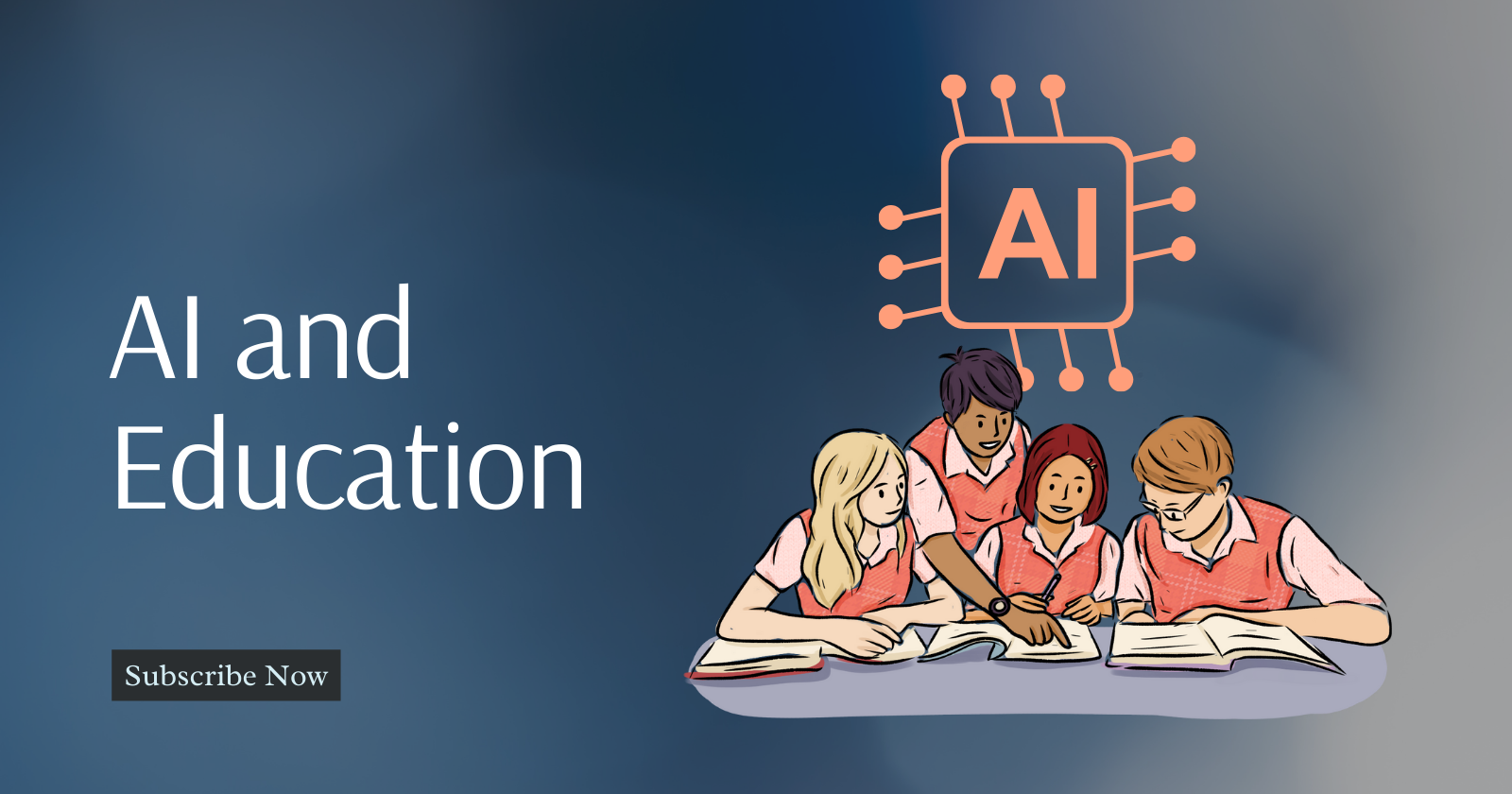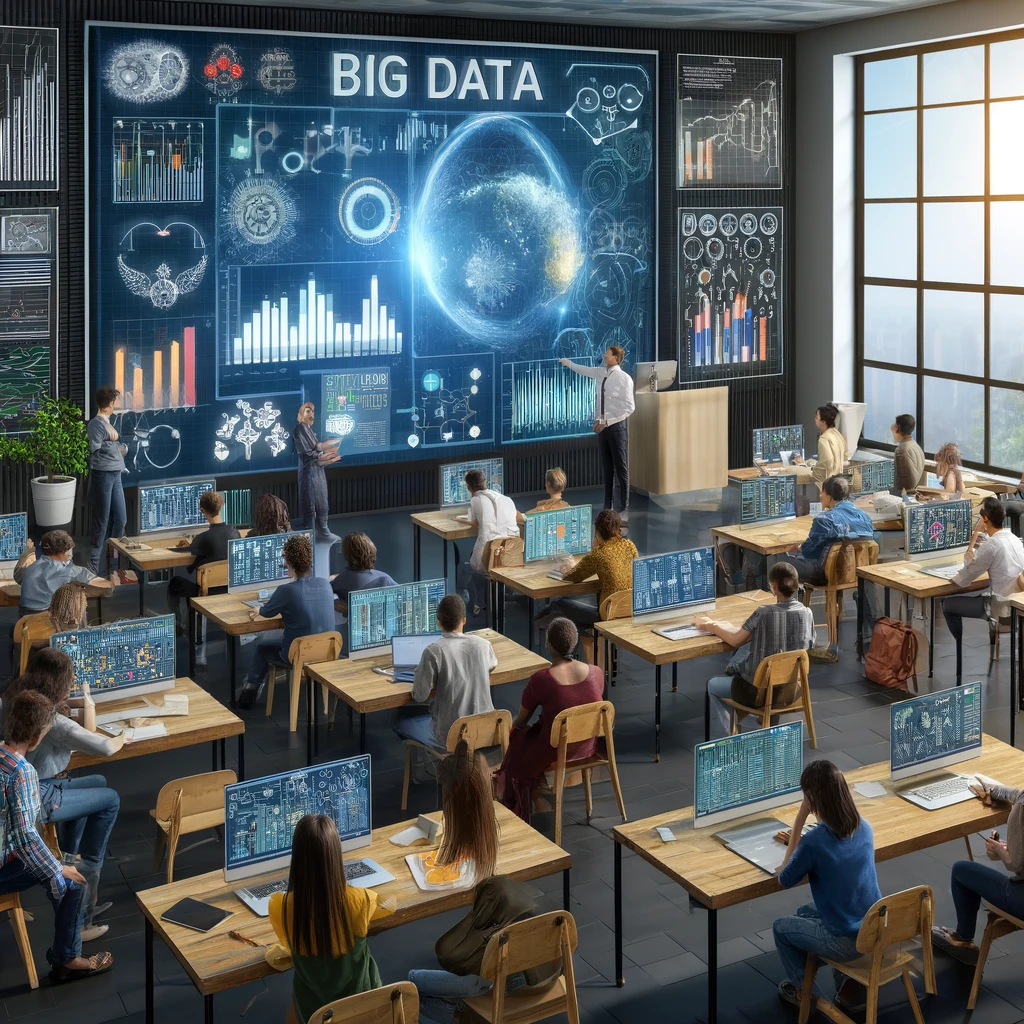AI and Education: Transforming the Future of Learning
 Fanny Nyayic
Fanny Nyayic
The education landscape is undergoing a seismic shift as Artificial Intelligence (AI) begins to infiltrate various aspects of learning and teaching.
With the advent of advanced AI technologies, the traditional educational model is being challenged and reimagined, paving the way for a future where personalized learning, instant feedback, and adaptive curriculums become the norm.
In this article, we will explore the transformative impact AI has on education and how it shapes the future of learning.
Personalized Learning Experiences
One of the most significant advantages of AI in education is its ability to create personalized learning experiences.
AI systems can analyze the learning habits, strengths, and weaknesses of individual students, tailoring the educational content to suit their unique needs.
This level of personalization ensures that students are not left behind due to a one-size-fits-all approach and can learn at their own pace, thereby enhancing their understanding and retention of knowledge.
Instant Feedback and Assessment
AI technologies can provide instant feedback to students, which is crucial in the learning process.
Unlike the traditional classroom setting where students may have to wait days or weeks for their grades, AI-driven systems can assess work in real-time and provide immediate insights.
This instant feedback loop allows students to quickly identify areas of improvement and adjust their learning strategies accordingly.
Classroom Dynamics and Management

AI is not just revolutionizing the way students learn but also how classrooms are managed. AI can produce post-lesson reports summarizing classroom dynamics, attendance, and participation.
This data can help educators understand the effectiveness of their teaching methods and make informed decisions to enhance the learning environment.
Big Data and Learning Analytics

The era of AI management of big data in education is upon us. With the vast amounts of data generated by online learning platforms, AI can analyze patterns and trends to improve the educational process.
Learning analytics can inform curriculum development, predict student performance, and provide insights into the efficacy of teaching methods and materials.
The Role of Teachers in an AI-Driven Education System
As AI continues to permeate the educational sector, the role of teachers is also evolving. Educators are transitioning from being the primary source of knowledge to facilitators of learning.
AI can take over repetitive tasks such as grading and administrative work, allowing teachers to focus on more critical aspects of teaching, such as mentoring and providing emotional support to students.
This shift is not about replacing teachers, but rather augmenting their capabilities and enabling them to become more effective educators.
Overcoming Educational Barriers with AI
AI has the potential to break down barriers that have traditionally hindered access to quality education.
Students in remote or underprivileged areas can benefit from AI-powered educational tools that provide high-quality, interactive learning experiences without the need for extensive physical infrastructure.
AI can also help overcome language barriers through real-time translation features, making education more inclusive and accessible to non-native speakers.
Adaptive Learning Platforms
Adaptive learning platforms are at the forefront of AI's integration into education. These platforms use AI algorithms to adjust the difficulty level of tasks based on the learner's performance.
As students interact with the platform, it learns about their abilities and tailors the educational content accordingly.
This ensures that students remain engaged and challenged, which is crucial for effective learning.
Virtual Tutors and Assistants
AI-powered virtual tutors and assistants are becoming increasingly sophisticated, and capable of providing students with one-on-one support.
These AI tutors can guide students through complex concepts, answer questions, and offer explanations just like a human tutor would, but with the added advantage of being available 24/7.
This constant access to educational support can significantly enhance the learning process.
Preparing Students for the Future
The integration of AI into education is not only about enhancing current educational practices but also about preparing students for a future dominated by AI and technology.
By incorporating AI into the curriculum, students can develop the necessary skills to thrive in a tech-centric world.
They learn to interact with AI tools, understand the basics of machine learning, and become adept at critical thinking and problem-solving in a technology-driven environment.
Ethical Considerations and Bias
As AI becomes more entrenched in education, it is essential to address ethical considerations and the potential for bias.
AI systems are only as unbiased as the data they are trained on, and there is a risk of perpetuating existing prejudices.
Educators and developers must work together to ensure that AI tools are designed and implemented in a way that is fair, and ethical, and promotes equality.
The Future of AI in Education
Looking ahead, the potential for AI in education is boundless. We can anticipate more immersive learning experiences through augmented and virtual reality, powered by AI.
There will be smarter content creation tools that assist teachers in developing customized learning materials.
AI could also play a role in career guidance, helping students navigate their educational and professional paths by analyzing their strengths, preferences, and current job market trends.
Moreover, AI could facilitate lifelong learning by recommending courses and resources to professionals throughout their careers.
Challenges and Limitations
Despite the numerous benefits, integrating AI into education does not come without challenges.
There are concerns about data privacy, as the use of AI requires the collection and analysis of vast amounts of personal information.
Ensuring the security of student data is paramount to maintaining trust in AI educational tools.
There is also the issue of the digital divide. While AI has the potential to make education more accessible, there is a risk of widening the gap between those who have access to cutting-edge technology and those who do not.
Ensuring equitable access to AI-driven educational resources is a challenge that must be addressed to prevent exacerbating educational inequalities.
Furthermore, the reliance on technology raises questions about the development of social skills.
Education is not just about acquiring knowledge; it's also about developing interpersonal skills through interaction with teachers and peers. Balancing the use of AI with the need for human connection will be crucial.
The Need for Continuous Learning and Adaptation
As AI continues to evolve, so too must the educational systems that incorporate it. Continuous professional development for teachers will be essential to ensure they can effectively integrate AI tools into their teaching practices.
Additionally, educational policies and curricula will need to be regularly updated to reflect the changing technological landscape and the skills required for future jobs.
Conclusion
AI's impact on education is transformative, offering personalized learning experiences, instant feedback, and new efficiencies in classroom management.
However, its integration into education must be handled with care, addressing ethical concerns, ensuring data privacy, and providing equitable access.
The future of learning is being reshaped by AI, and it promises to make education more effective, inclusive, and adaptable to the needs of students worldwide.
As we embrace this future, it is crucial to remember that the goal of education is not just to impart knowledge but to foster the holistic development of individuals.
AI is a powerful tool in this endeavor, but it is the human touch that will continue to be the heart of educational success.
Subscribe to my newsletter
Read articles from Fanny Nyayic directly inside your inbox. Subscribe to the newsletter, and don't miss out.
Written by

Fanny Nyayic
Fanny Nyayic
a passionate web developer, tech writer, open-source contributor & a life long learner.